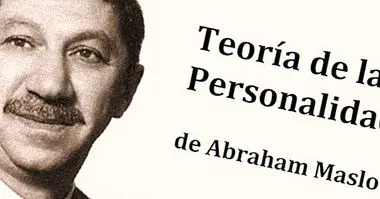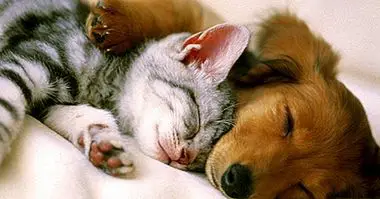Hypocritical people: 6 typical characteristics that define them
Any human being, for the simple fact of being one, has to experience a vital drama: their own interests and the interests of others, which are expressed through social norms, do not coincide. However, to survive it is necessary to exist within a certain social fabric, be it a family, a village, a town or a large city. That's where the strategies created to manage this tension appear: you have to be yourself, but trying to make that not worth the contempt or rejection of others.
Fortunately, most people are able to combine these two realities well (that of public interests and private interests). However, on other occasions there are those who opt for attitudes markedly cynical or opportunistic enough to be geniunately pro-social. Usually, we know these individuals as hypocritical people .
But ... what is it that really characterizes hypocrites? Let's see, from a proposal of 6 typical features of those who adopt this strategy to socialize.
- Related article: "Differences between personality, temperament and character"
6 characteristics of hypocritical people
Although there are several ways to identify hypocrites, we will usually be able to recognize the following characteristics in them.
1. Explicit but inconsistent morality
One of the ways in which it is easier to differentiate hypocrites is to look at their use of morality .
From the individualistic point of view, moral standards can have an unpleasant side, especially when we feel we should do something that we do not want, but they also have a positive side, since we can appeal to them when we want other people to behave a way that benefits us. Hypocritical people know this, and that is why they make use of morality to try that others are governed by those values.
Of course, this contrasts with your own compliance with the rules. Who lives in an environment in which others live according to moral restrictions that one does not follow, has a competitive advantage, and hypocrites abuse them without practically having remorse.
- Maybe you're interested: "Cynical people: its 7 characteristics and typical features"
2. False affability
Hypocritical people tend to look for quick and undignified ways to get social capital (that is, the sympathies of many people, or at least the possibility of using them). For this, something usual is to fake a false interest in the life of the other at key moments, such as greetings or farewells. It is noted that it is not an honest and spontaneous initiative because, beyond these key moments, sympathy transforms into difference.
3. Minimal social contact until the favor comes
Another of the usual attitudes of hypocrites is to have "friends" or people known in your agenda, without there being any dealings with them, and take advantage of this only to ask for concrete favors.
Unlike others, who at the time of social networks can have many contacts stored passively in the phone book or in the friends section of one of their profiles on social networks, who have this opportunistic spirit are not consistent with the fact that they barely deal with those people, and if they can, they take advantage of knowing them without contributing anything in return.
This is important, because what is appealed to when asking for a favor, friendship, has not existed or no longer exists in practice, only in a theoretical manner. However, it seems that it begins to be a real emotional bond seconds before making a request. Soon after, that supposed friendship will fall into oblivion again.
4. They make useless gestures of kindness
Try to invite some tapas when another person has already paid, notify an event that it is clear that you can not attend ... These gestures are a way to try to seduce people without exposing themselves to small discomforts or inconveniences that this can generate.
5. Praise on the one hand, complicity with teasing on the other
Another typical attitude of hypocritical people is to show themselves as friends while, when the other person is not present and criticized, it shows complicity with these criticisms, regardless of whether they are fair or not . It is also usual for the hypocrite to bring out these criticisms, sometimes with the aim of gaining social acceptance by detecting imperfections in others.
6. Disappearances when bottom hits
When someone is going through bad times, it is relatively frequent that the hypocritical people around them who showed a close relationship with the former disappear in anticipation that they can ask for help, even if it is minimal.



















